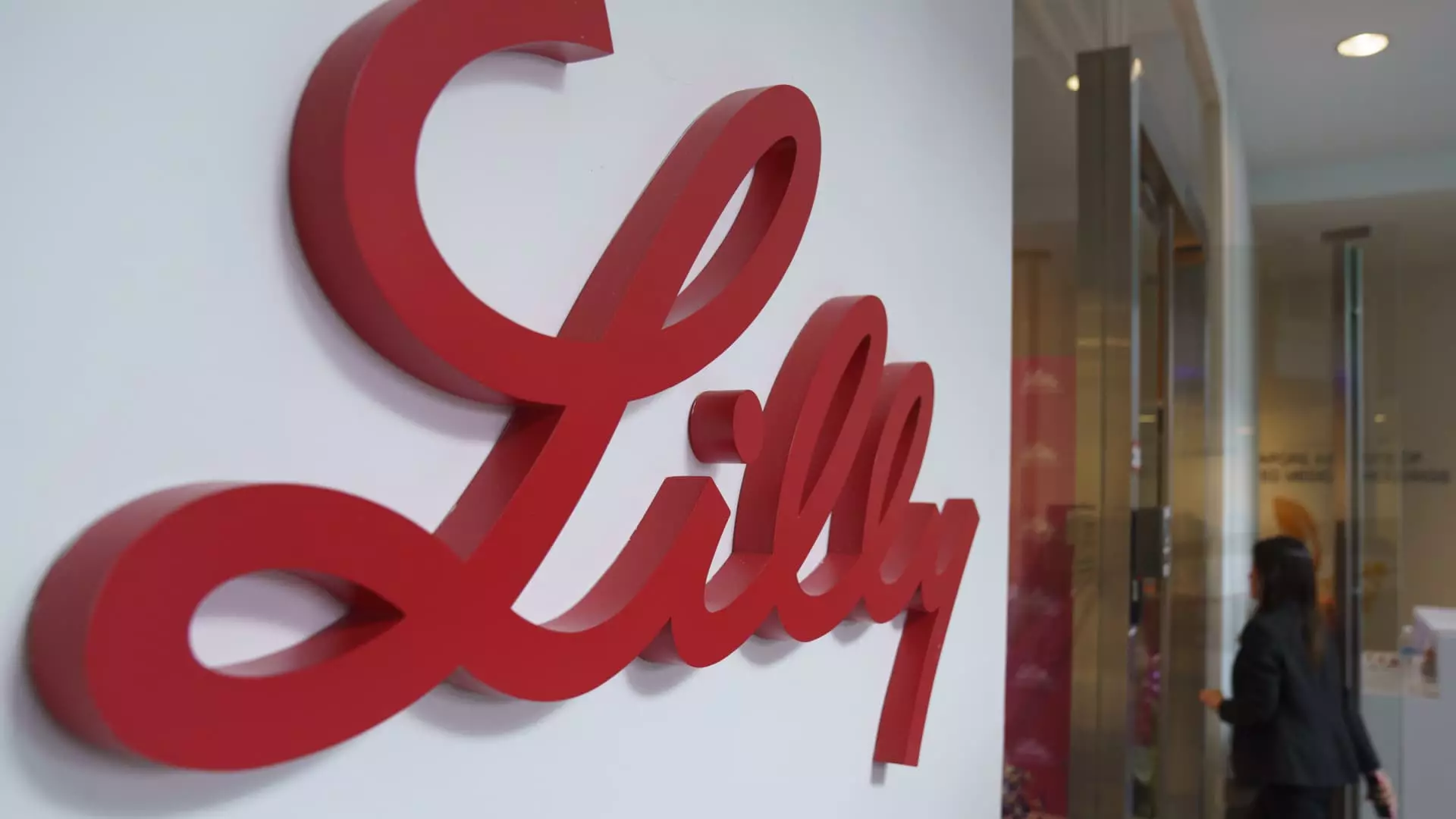In an age where corporate earnings serve as essential indicators of economic health, Eli Lilly’s recent financial performance paints a complex picture filled with both triumph and caution. For the first quarter, the pharmaceutical giant not only surpassed revenue and earnings expectations but did so in a climate saturated with economic volatility and political tension. With a reported $12.73 billion in revenue — an astounding 45% increase year over year — Eli Lilly is clearly capitalizing on a growing market for its diabetes drug, Mounjaro, and weight-loss treatment, Zepbound. Mounjaro alone generated $3.84 billion, marking an impressive 113% increase from the previous year. Such numbers put Eli Lilly in the spotlight, but a darker shadow looms over its future as the company recently adjusted its profit guidance downward due to an unexpected $1.57 billion charge related to its acquisition of an oral cancer drug from Scorpion Therapeutics.
A Troubling Trend: Optimism Meets Draconian Policies
Despite an overall surge in sales, Eli Lilly’s decision to lower its full-year profit guidance casts a pall over what would otherwise be celebrated as a stellar quarter. The adjustment is a reminder that the pharmaceutical industry is fraught with intricate challenges that can unravel even the most promising financial forecasts. Political forces, namely the tariffs enforced during Donald Trump’s administration, have left their mark on Eli Lilly’s operations. CEO Dave Ricks, while acknowledging the increasing costs tied to these tariffs, notably claimed that they could ultimately enhance U.S. manufacturing by bringing critical supply chains back to American soil. However, one must question the viability of this approach when drugmakers like Eli Lilly are forced to consider moving operations abroad to mitigate tax burdens. The call for a 15% tax rate on domestic production could be seen as an attempt to level the playing field, but it still raises critical questions about the overall economic strategy—does penalizing companies that choose more favorable tax environments truly foster domestic growth?
The Supply-Demand Dilemma
One remarkable aspect of Eli Lilly’s recent performance is rooted in its over-the-top demand for Mounjaro and Zepbound. Both drugs are designed to tackle pressing health issues: diabetes and obesity—two escalating problems in the United States. The heavy demand is further exacerbated by a lagging supply chain, forcing Eli Lilly to invest considerably in ramping up production capacities. As healthcare providers and patients alike clamor for these treatments, companies like Eli Lilly find themselves in a race against time to meet expectations, not only to satisfy consumers but also to appease investors, whose confidence can waver swiftly. The FDA’s recent declaration of an end to the shortage of tirzepatide (the active ingredient in both Mounjaro and Zepbound) provides some relief to Eli Lilly as it ensures that a market for alternatives is curtailed. Yet, this raises ethical questions: should pharmaceutical companies have the ability to charge premium prices for medications in high-demand scenarios, especially when many vulnerable populations may be priced out of access?
Health Care: A Tug-of-War Between Profit and Ethics
The reality of soaring pharmaceutical revenues juxtaposed with healthcare accessibility issues invites a wider societal reflection. Eli Lilly’s success has undeniably profound implications within the complicated tapestry of American healthcare. When drug companies see profits soar into the billions while consumers face prohibitive prices, moral quandaries emerge. The cost for pharmaceuticals must stem from the innovation and research that drives such treatments, yet profit motives often overshadow the human element. Is it ethical for Eli Lilly to benefit financially while potentially neglecting to make these essential medications accessible to everyone who needs them? The balance between profit and accessibility must be evaluated scrupulously.
In this politically charged atmosphere, where the government seeks to reshape the economic landscape of healthcare through tariffs and business incentives, one message comes through clearly: stakeholder interests may often obstruct genuine healthcare reform. The pharmaceutical industry is at a crossroads. As companies experience unprecedented financial success, substantial responsibility looms. Philanthropic considerations should ideally intersect with business strategies, pushing organizations like Eli Lilly toward solutions that prioritize equitable access.
As Eli Lilly navigates its financial triumphs and tribulations, external pressures will significantly influence its next steps. Will the company be able to maintain its upward trajectory while still considering the ethical ramifications of its pricing and production strategies? The response to that question lies not only in corporate boardrooms but within the larger conversation around healthcare as a fundamental human right.

